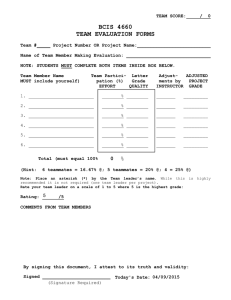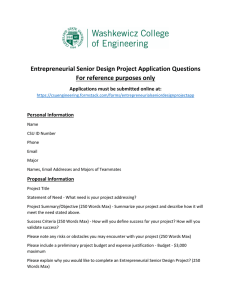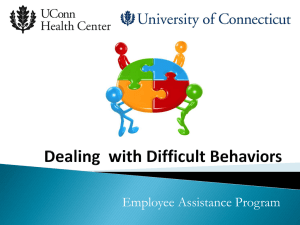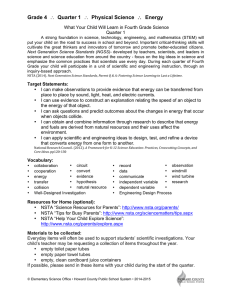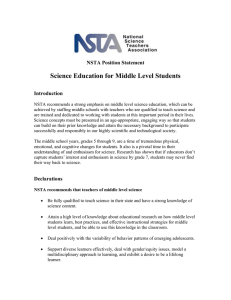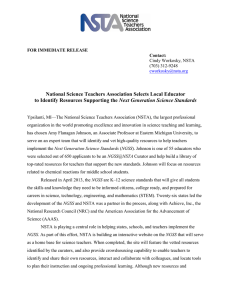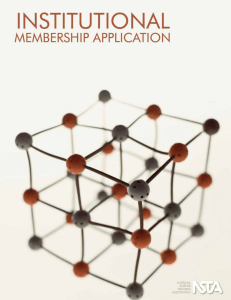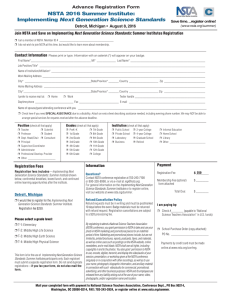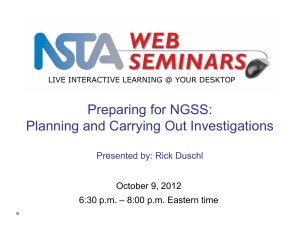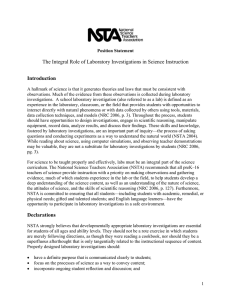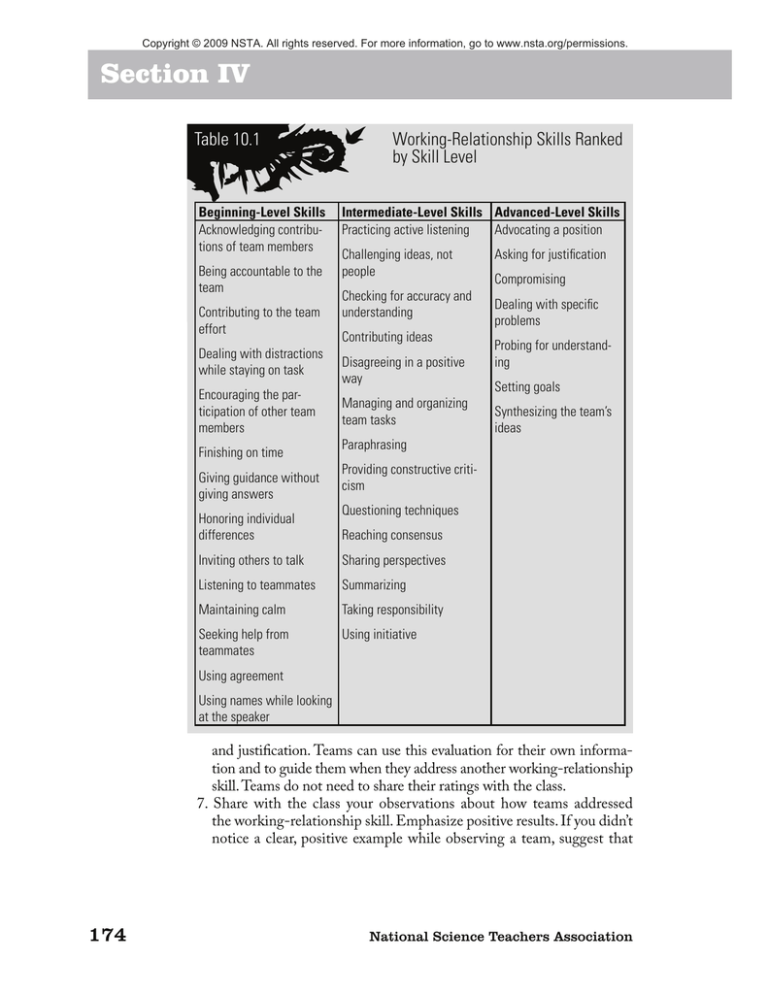
Copyright © 2009 NSTA. All rights reserved. For more information, go to www.nsta.org/permissions.
Section IV
Table 10.1
Beginning-Level Skills
Acknowledging contributions of team members
Being accountable to the
team
Contributing to the team
effort
Dealing with distractions
while staying on task
Encouraging the participation of other team
members
Finishing on time
Giving guidance without
giving answers
Honoring individual
differences
Working-Relationship Skills Ranked
by Skill Level
Intermediate-Level Skills Advanced-Level Skills
Practicing active listening
Advocating a position
Challenging ideas, not
people
Checking for accuracy and
understanding
Contributing ideas
Disagreeing in a positive
way
Managing and organizing
team tasks
Asking for justification
Compromising
Dealing with specific
problems
Probing for understanding
Setting goals
Synthesizing the team’s
ideas
Paraphrasing
Providing constructive criticism
Questioning techniques
Reaching consensus
Inviting others to talk
Sharing perspectives
Listening to teammates
Summarizing
Maintaining calm
Taking responsibility
Seeking help from
teammates
Using initiative
Using agreement
Using names while looking
at the speaker
and justification. Teams can use this evaluation for their own information and to guide them when they address another working-relationship
skill. Teams do not need to share their ratings with the class.
7. Share with the class your observations about how teams addressed
the working-relationship skill. Emphasize positive results. If you didn’t
notice a clear, positive example while observing a team, suggest that
174
National Science Teachers Association

